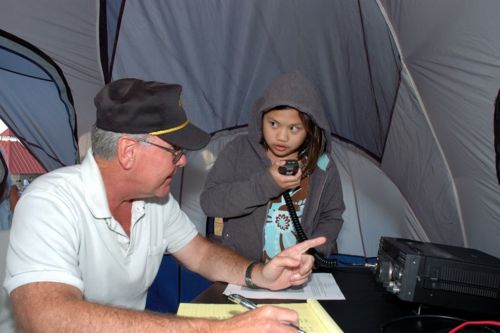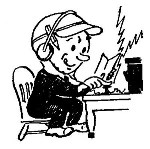The control operator is an important concept in ham radio. There are many license exam questions involving the control operator so we want to spend a bit of time on the subject. While legally specific to USA radio amateurs, some of these rules may apply in other countries as well.
A ham radio station control operator is the licensed amateur who is operating a station’s transmit function. Any unlicensed person or even your cat can manipulate station controls with respect to receiving but when it comes to transmission of any signals, there must be a licensed operator in control of the transmitter. This is a fundamental rule of the FCC to regulate ham radio transmissions in the US.

Savvy readers might wonder how this applies to repeaters and more sophisticated stations operated remotely. Control operators are still required for all amateur transmissions. Always a control operator.
With repeaters it is done automatically through a sophisticated repeater controller that follows the rules. However, the repeater station licensee is still responsible and is considered the control operator while using automatic control.

With remote control the control operator is simply using some method to indirectly control radio settings, including the transmit function. They are still responsible for transmitter operation even if they are not physically near the radio.

Even if the radio control point is remote from the transmitter, a licensed control operator must be present.

The control operator need not be the one speaking into the mic, using a Morse key or typing a digital message; as long as they are in direct control of the transmitter, someone else can be doing the communicating. That means your friend or relative can do the talking as long as you, the control operator, can intervene if something goes wrong.

When you get an amateur radio grant in the US, you actually receive two licenses: One is your operator license and the other is the station license. Both are associated with your unique call sign.

More commonly, when a ham is transmitting, the operator and station are one and the same, as when KF5ZFD makes a 20m SSB contact in another state from their home location using their own transceiver and antenna.
So why do American hams have two separate licenses? We’ll try to explain here.
Firstly, there are three basic types of FCC-issued Amateur station licenses. Only the familiar operator/primary station license is for individuals. The other two—club and military recreation licenses—are stations intended to be used by licensed individuals.
This means that a ham would use their operator privileges to be a legitimate control operator of a club or military recreation station. In this case the applicable call sign would normally be the station’s, not the operator’s.
Secondly, hams are not restricted to their own station equipment (radio, antenna, accessories). You might visit another ham’s shack and operate their transceiver. In this case, the applicable call sign could be Continue reading




